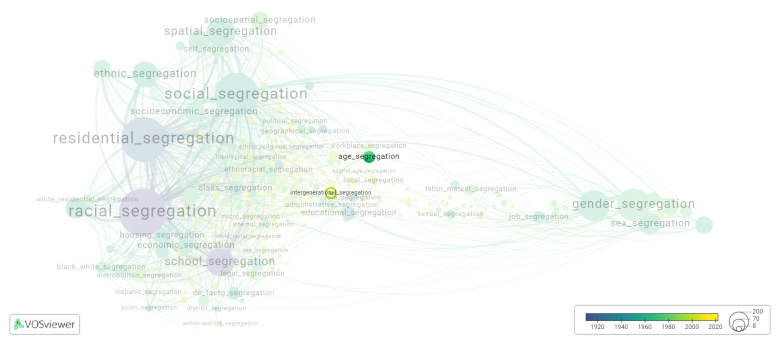Intergenerational segregation
Date and country of first publication[1]
2011
United States
Definition
Intergenerational segregation refers to a social phenomenon where different age groups, such as children, young adults, middle-aged adults, and elderly individuals, are physically separated from one another and do not interact within the same spaces or communities. This segregation can occur in various settings such as schools, neighborhoods, workplaces, and social events.
Intergenerational segregation can have negative consequences on individuals and society as a whole. It can lead to misunderstandings and stereotypes between different age groups, hinder social cohesion and support systems, and contribute to ageism and discrimination. It can also limit opportunities for intergenerational learning and collaboration.
Efforts to promote intergenerational integration and interaction can help bridge the gap between different age groups and foster understanding and respect among individuals of all ages. This can be achieved through intergenerational programs, community events, and initiatives that bring people of different generations together to learn from one another and build connections.
See also
Related segregation forms
Intergenerational segregation is frequently discussed in the literature with the following segregation forms:
This visualization is based on the study The Multidisciplinary Landscape of Segregation Research.
For the complete network of interrelated segregation forms, please refer to:
References
Notes
- ↑ Date and country of first publication as informed by the Scopus database (December 2023).
Intergenerational segregation appears in the following literature
Kral M.J., Idlout L., Minore J.B., Dyck R.J., Kirmayer L.J. (2011). Unikkaartuit: Meanings of Well Being, Unhappiness, Health, and Community Change Among Inuit in Nunavut, Canada. American Journal of Community Psychology, 48(3-4), 426-438. https://doi.org/10.1007/s10464-011-9431-4
Liu C. (2017). Family based food practices and their intergenerational geographies in contemporary Guangzhou, China. Transactions of the Institute of British Geographers, 42(4), 572-583. Blackwell Publishing Ltd.https://doi.org/10.1111/tran.12178
Lai A., Burchett R. (2021). Involving Retired Citizens in ESL Education: Case Study of a Secondary School Program. Journal of Intergenerational Relationships, 19(2), 249-271. Routledge.https://doi.org/10.1080/15350770.2020.1739588
Das Gupta D., Wong D.W.S. (2022). Changing Age Segregation in the US: 1990 to 2010. Research on Aging, 44(9-10), 669-681. SAGE Publications Inc..https://doi.org/10.1177/01640275221074398

